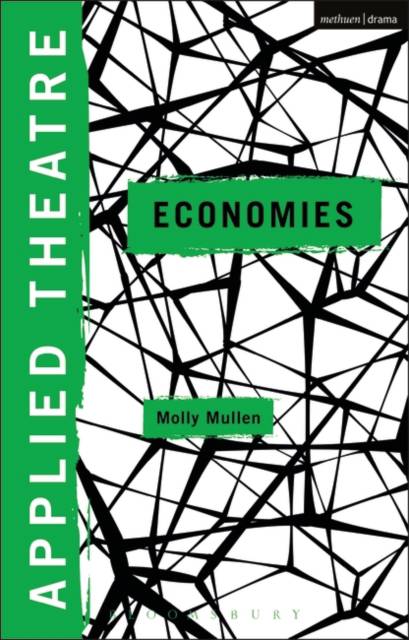
Bedankt voor het vertrouwen het afgelopen jaar! Om jou te bedanken bieden we GRATIS verzending (in België) aan op alles gedurende de hele maand januari.
- Afhalen na 1 uur in een winkel met voorraad
- In januari gratis thuislevering in België
- Ruim aanbod met 7 miljoen producten
Bedankt voor het vertrouwen het afgelopen jaar! Om jou te bedanken bieden we GRATIS verzending (in België) aan op alles gedurende de hele maand januari.
- Afhalen na 1 uur in een winkel met voorraad
- In januari gratis thuislevering in België
- Ruim aanbod met 7 miljoen producten
Zoeken
Omschrijving
The APPLIED THEATRE series is a major innovation in applied theatre
scholarship: each book presents new ways of seeing and critically reflecting on this dynamic and
vibrant field. Volumes offer a theoretical framework and introductory survey of the field
addressed, combined with a range of case studies illustrating and critically engaging with
practice.
Series Editors: Sheila Preston and Michael Balfour
Applied Theatre: Economies addresses a notoriously problematic area: applied theatre's relationship
to the economy and the ways in which socially committed theatre makers fund, finance or otherwise
resource their work.
Part One addresses longstanding concerns in the field about the effects of economic conditions and
funding relationships on applied theatre practice. It considers how applied theatre's relationship
with local
and global economies can be understood from different theoretical and philosophical perspectives.
It also examines a range of ways in which applied theatre can be resourced, identifying key issues
and seeking possibilities for theatre makers to sustain their work without undermining their social
and artistic values.
The international case studies in Part Two give vivid insights into the day-to-day challenges of
resourcing applied theatre work in Chile, Canada, the UK, New Zealand, Hong Kong and the US. The
authors examine critical issues or points of tension that have arisen in a particular funding
relationship or from specific economic activities. Each study also illuminates ways in which
applied theatre makers can bring artistic and social justice principles to bear on financial and
organizational processes.
scholarship: each book presents new ways of seeing and critically reflecting on this dynamic and
vibrant field. Volumes offer a theoretical framework and introductory survey of the field
addressed, combined with a range of case studies illustrating and critically engaging with
practice.
Series Editors: Sheila Preston and Michael Balfour
Applied Theatre: Economies addresses a notoriously problematic area: applied theatre's relationship
to the economy and the ways in which socially committed theatre makers fund, finance or otherwise
resource their work.
Part One addresses longstanding concerns in the field about the effects of economic conditions and
funding relationships on applied theatre practice. It considers how applied theatre's relationship
with local
and global economies can be understood from different theoretical and philosophical perspectives.
It also examines a range of ways in which applied theatre can be resourced, identifying key issues
and seeking possibilities for theatre makers to sustain their work without undermining their social
and artistic values.
The international case studies in Part Two give vivid insights into the day-to-day challenges of
resourcing applied theatre work in Chile, Canada, the UK, New Zealand, Hong Kong and the US. The
authors examine critical issues or points of tension that have arisen in a particular funding
relationship or from specific economic activities. Each study also illuminates ways in which
applied theatre makers can bring artistic and social justice principles to bear on financial and
organizational processes.
Specificaties
Betrokkenen
- Uitgeverij:
Inhoud
- Aantal bladzijden:
- 280
- Taal:
- Engels
- Reeks:
Eigenschappen
- Productcode (EAN):
- 9781350001701
- Verschijningsdatum:
- 6/09/2018
- Uitvoering:
- Hardcover
- Formaat:
- Genaaid
- Afmetingen:
- 145 mm x 218 mm
- Gewicht:
- 458 g

Alleen bij Standaard Boekhandel
+ 457 punten op je klantenkaart van Standaard Boekhandel
Beoordelingen
We publiceren alleen reviews die voldoen aan de voorwaarden voor reviews. Bekijk onze voorwaarden voor reviews.








